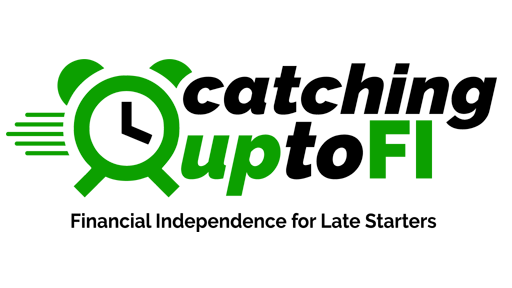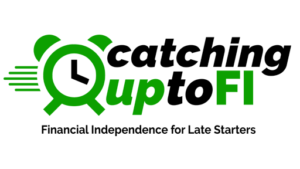At A Glance – Even though the purpose of a Health Savings Account (HSA) is for medical expenses, it is a powerful savings tool. The triple tax advantage of the HSA makes it a great tool for retirement savings.
Jump directly to the Triple Tax Advantages
What Is An HSA?
An HSA or Health Savings Account is a type of savings account that lets you set aside money on a pre-tax basis to pay for qualified medical expenses. These qualified medical expenses can include doctor bills, deductibles, copayments, coinsurance, and some dental, drug, and vision expenses. HSA funds generally may not be used to pay premiums. Here is a link to IRS publication 969, Health Savings Accounts and Other Tax-Favored Health Plans.
How Does An HSA Work?
Who Can Open An HSA?
According to the IRS, an HSA is for any eligible individual. To qualify as an eligible individual you have to meet the following criteria:
- Covered under a High Deductible Health Plan or HDHP. (Deductible minimums for tax year 2021 are $1,400 for individuals, $2,800 for families.)
- Have no other health covereage (except that permitted by the IRS)
- Are not enrolled in Medicare
- You cannot be claimed as a dependent on someone else’s tax return
Where Do You Keep An HSA?
An HSA can be opened at a bank, some brokerage houses, or an insurance company. If you contribute to your account through your employer, the easiest way to set it up is with the bank your employer has chosen. That way your contributions can be deducted from your paycheck. If you do not contribute through your employer, you can choose your own institution that is qualified to handle an HSA.
How To Contribute To An HSA?
If your employer allows it, you can contribute to your HSA through pre-tax payroll withholdings. This means you don’t have to pay federal and state income taxes (in most states), as well as FICA tax. Any contributions made by your employer will be excluded from your gross income.
If you don’t contribute through pre-tax payroll withholding, you can make your own contributions online or by mail. If you choose this approach, you can deduct your HSA contribution amount on your tax return, even if you don’t itemize.
Who Can Contribute To Your HSA?
Anyone can contribute to your HSA – you, your employer, your spouse, or any others. Usually, contributions are made through payroll deductions by you or your employer or a combination of the two. If you are self-employed or unemployed, you may make your own contributions.
What Are the Contribution Limits?
For tax year 2021, contribution limits are $3,600 annually for an individual or $7,200 annually for a family. If you are age 55 or over, you may make an additional $1,000 “catch up” contribution that would increase the limits to $4,600 or $8,200.
For married couples, if either spouse has family HDHP coverage, both spouses are treated as having family HDHP coverage. When one spouse has family HDHP coverage and the other spouse is not employed, you can contribute up to the family max in the employed spouse’s account.
How Do You Withdraw Your Money From An HSA?
Money can be withdrawn from your HSA account through a debit card or check or by contacting your HSA bank or provider. Check with your provider to find out what methods they offer.
Medical bills can be paid immediately or later. Sometimes I paid the doctor bill immediately with my debit card. For bills I am paying later, I keep a copy of the bill showing the amount I paid out of my own pocket. Then I can reimburse myself at any time I prefer. There are no time limits for reimbursement, as long as you have the bill to match it.
If you take a distribution to pay for a non-medical expense, the money is taxed at the same rate as a distribution from a Traditional IRA. If you take a non-medical distribution before the age of 65, that money is subject to the tax and a 20% penalty.
The Triple Tax Advantage Of An HSA
Tax Advantage #1
Your contributions are deductible on your tax return whether or not you itemize deductions. Employer contributions aren’t included in your gross income but are included in the yearly contribution limits.
The money is going in tax-free.
Tax Advantage #2
Any money in your account that has been invested grows tax-free.
The purpose of an HSA is to help you pay for medical expenses using non-taxed dollars. This is how I first started using my HSA. We have a debit card tied to our HSA account and, at first, I paid for doctor bills with the card.
Then I discovered the HSA’s real power. It can be used as an investment tool. Who knew! I started paying for bills out of my pocket and let the HSA account accumulate. Your HSA provider will probably require a minimum amount of cash to be kept in the account. Mine is $2,000. Any money above that can be invested. Your provider will offer a list of investment options, similar to a 401k. Ours even offers VTSAX as an option. Score!
Everything above our cash minimum is invested. So I don’t pay for medical expenses out of the HSA – yet. The money is left to grow just like it does in our Vanguard investment accounts. When the time comes that I want to withdraw funds, I will simply reimburse myself for the bills I’ve already paid. Remember, you must have the receipts to match to your withdrawals.
Tax Advantage #3
When you withdraw money from your HSA for qualified medical expenses, the money is not taxed. As stated above, withdrawals from an HSA for qualified expenses can happen at any time. You can pay a doctor bill today, or wait several years to reimburse yourself for the expense.
No matter when you draw out the money, if it is for a qualified expense it comes out of the account tax-free.
Summary of the Triple Tax
Advantage Of The HSA
- Your money goes in tax-free.
- Your money grows tax-free.
- Your money comes out tax-free.
Other Tips About HSAs
- An HSA is not a use-it-or-lose-it account like an FSA. The account is yours to keep.
- When you pass away, the account balance goes to the beneficiary you name.
- You don’t lose the money if you leave your employer. The account belongs to you.
- HSAs don’t have Required Minimum Distributions. You will not have to start withdrawing the money by a certain age.
Key Takeaway – Even though the purpose of an HSAs is for medical expenses, it is a powerful savings tool. Its triple tax advantage makes it a great tool for retirement savings
Assignment 1 – If you don’t have an HSA, check with your HR department to see if you have access to one. If you are self-employed and you have an HDHP, check into setting one up for yourself or your family.
Assignment 2 – If you do have an HSA, see if you can stop using it to pay for medical expenses and let it grow. Check into the investment options available and invest the amount you feel comfortable with.









